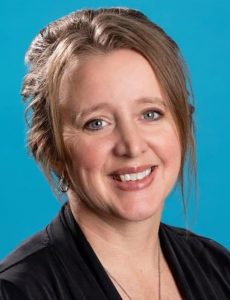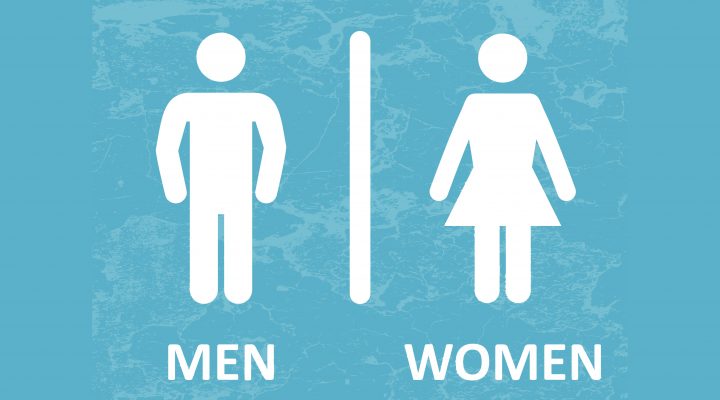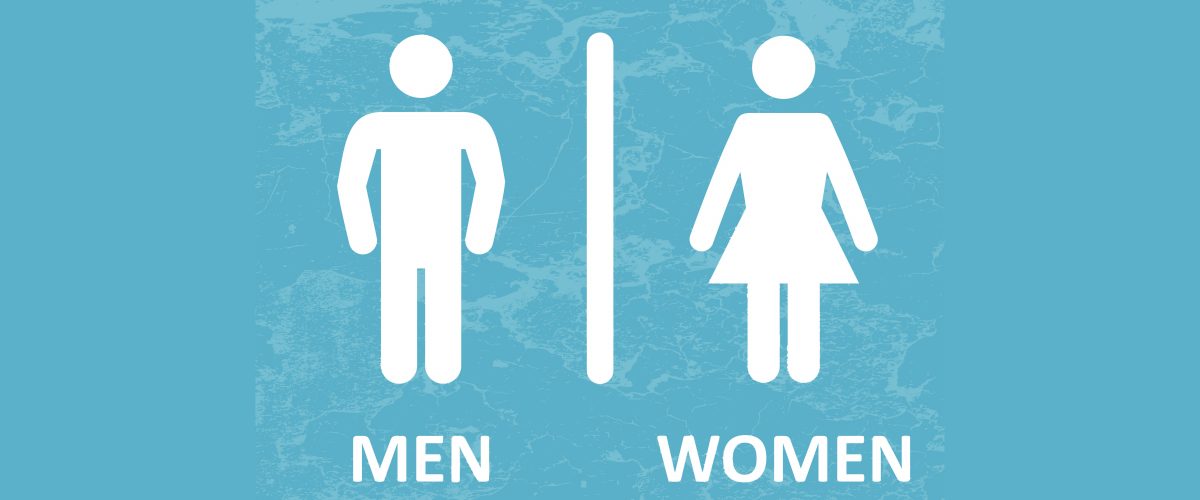What no one seems to be talking about is the harm the Southern Baptist Convention is doing to both women and men.
Demands to define a strict gender binary and assign specific roles by gender are causing harm to every body in our society.

Lindsay Bruehl
What the SBC has done most recently by removing two churches from fellowship because they ordained women as pastors is a systemic issue that has long plagued women in the church and in political office. This is an obvious act of systemic violence against women, and our culture is finally waking up to this crisis.
Women are not being represented in large enough numbers in any room where the decisions are made that cause actual harm to our bodies, mental health, health care and everyday life. The SBC is not the only place where these outdated gender roles are assigned, but right now the SBC is making us pay attention to it.
“We are all affected by this, whether we are associated with the SBC or not.”
And for good reason. The SBC holds a lot of political power. Thus, we are all affected by this, whether we are associated with the SBC or not. This is more than a corrupt religious institution; this is also a political movement with an agenda.
Father’s Day
The obvious group being harmed systemically by this is women. But men and boys also are being harmed.
It is ironic that the SBC’s showdown over gender roles happened right before Father’s Day. Rick Warren stood up and took on the role of a good father to people in Baptist churches at a time they really needed one.
On Father’s Day, we often critique how men have not lived up to what they should be for the family more than we have celebrated how good it is to be fathers. Men and boys are beginning to feel worthless, and there are lots of studies coming out showing how much they are struggling because of this.
I understand not all of us have good fathers, and there are far too many homes without fathers at all — and that, too, is a systemic issue.
Today, I want to highlight how good it is to have fathers — whether they are biological, spiritual, mentors, teachers, therapists or friends. Fatherhood does not have to come in one form.
“I want to highlight how good it is to have fathers.”
I was listening to author and researcher Richard Reeves on “Pantsuit Politics” last week. The title of the podcast is “Why the Modern Male is Struggling.” In his book Of Boys and Men: Why the Modern Male Is Struggling, Why It Matters, and What to Do about It, Reeves cites evidence that kids flourish more in school and other areas of life when a father is present in their lives, or if they have some kind of male figure in their life who represents that kind of caretaker.
But he regrets he wrote that chapter more as a means to an end than as a precious identity. It matters to men they are fathers. Just the identity of being a father is enough and is good enough on its own without any evidence attempting to prove its worth by any outcome.
The absent father trope has been beaten to death by white conservative evangelicals seeking to victimize Black and minority families. And manhood has been defined as fatherhood to the detriment of men who are not fathers.
Yet just because the message about the value of fathers has been misused doesn’t mean there’s not value in fatherhood.
Lifting men up by pushing women down
Another problem: Too often, men have been elevated as fathers by diminishing women.
I grew up in a complementarian church. Because of this background, I heard for too many years that I could not preach. I could not lead men spiritually. This took away my control over my own spiritual journey, and it prevented me from connecting with men in the church in a way we could both grow together spiritually.
This system is rotten. It is designed to make men and women not trust each other. If you do not identify as either male or female or do not conform to the traditional ways of being male or female, you do not exist at all.
This experience had a profound impact on me later on when I realized I had a voice that had been systematically silenced. People did not notice because not listening to women was normalized. Even I didn’t notice until I was hurting so deeply and crying out to be heard. I had to move to a place that valued women in order to be heard. This move landed me in seminary too.
My life changed because a church system existed in my area that recognized the value of women in ministry. I also was around safe people, both men and women, who stayed present with me as I had a lot of healing work to do to unlearn all this toxic theology that had weighed me down for far too long.
“Men in ministry valuing me and seeing me as a friend and colleague changed my life for the better.”
I am especially grateful for the presence of men who stood by my side too. That is a gift that had been denied to me in a church environment, and we do not talk about that enough. Men in ministry valuing me and seeing me as a friend and colleague changed my life for the better. These men never saw me as a threat, nor did I see them as a threat either. We were friends.
I was able to heal because our culture is beginning to see the systemic injustice against women. But I did not hear the suffering of men until they began to tell me they do not know how to share their pain and needs in a #MeToo world.
We are not giving men a vision of what is good about being men and boys, just a lot of what not to be.
Something tragic happened to my family through the public school system that opened my eyes to the systemic injustice our men and boys are experiencing. Just like women are underrepresented in places of leadership in both church and public office, there are places where men are underrepresented — like public schools. And they are being treated unequally.
Boys are not doing as well in school as girls, and instead of looking at the environment to understand what is happening to boys, we are blaming them. There is also a lack of male teachers in schools, especially at the younger grade levels. That leaves a hole in our children’s development.
Yet men who are teachers in the school system and trying to help and be positive influences in the lives of children and teens are being viewed with greater suspicion. They are also not receiving any systemic support or training to help them navigate the greater risks they face. This needs attention.
“The system is reacting, but it is not listening.”
I often hear we over-correct problems before we balance. I would argue in the case of the #MeToo movement we have not corrected at all. The system is reacting, but it is not listening. It is still protecting the system, not people or what is true. We are doing the same thing; it just looks different now. The same issue is at stake — protect the system.
None of us have arrived
Back to Father’s Day. Prior to 2022, I would have judged Rick Warren more harshly for even attempting to think he could take on the SBC when women have tried for years and failed, and for taking so long to realize this system is rotten. Now I celebrate a man who will stand up for himself and for others.
This is about the journey. None of us have arrived yet. What an example Warren set by embodying what he believes and standing up to a system he has benefited from at the expense of women. He became a good father in this season to those who rarely hear men say women have worth in ministry.
That is courage, and his humanity grew because he took that leap of faith. The outcome is what it is and what a lot of us expected. But Rick Warren is healing, and others will too because he allowed himself to be affected by the systemic injustice against women.
In the same way our church life and political life is hindered by the lack of female representation, so the lack of male representation hinders other areas. In these cases, women need to stand up for men, too.
We must build systems of trust — systems where people of all walks of life and experiences matter and can receive the full benefit of living in the community. This will be good for women and men, girls and boys.
Lindsay Bruehl is a 2022 graduate of Perkins School of Theology with a master of divinity degree. She is the founding Baptist House of Studies assistant at Perkins. She also holds a finance degree from Oklahoma State University and works as a bookkeeper for a nonprofit and serves on the board of Rewilding Ministry. She and her family live in Norman, Okla.
Related articles:
Saddleback and Fern Creek churches face off against Al Mohler at SBC meeting
The rhetorical genius of Rick Warren | Opinion by Rodney Kennedy


